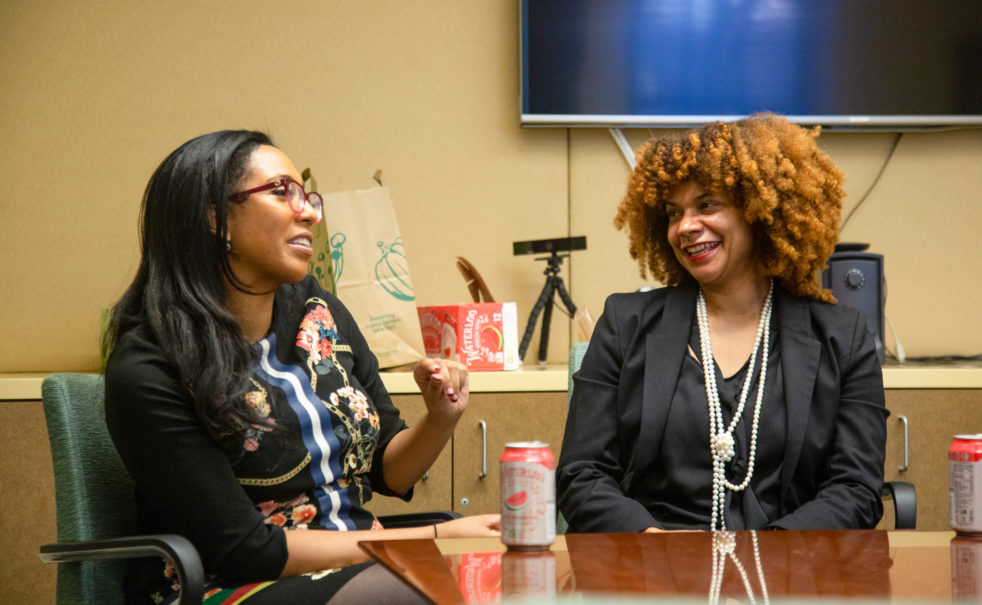This past week the Black Feminist Think Tank (BFTT) welcomed Leah Wright Rigueur of Brandeis University and Congress’ Chief of Staff Sophia King LaFargue to campus in order to speak on a segment entitled, “From Shirley Chrisholm to Stacey Abrams: American Politics.”
Dr. Sherie Randolph, co-director of BFTT and associate professor of history here at Tech, moderated this intriguing discussion and asked questions ranging from “How did we get here?” to “Why is AOC popular?”
Before responding to the first question prompted by Dr. Randolph, Rigueur commented on the unique environment curated by the BFTT as well as the importance of such an environment.
“Part of the really wonderful opportunities like this is that we can ask a lot of questions and really hash it out in an environment like this,” she said.
The unique environment of the BFTT was appreciated by all in the attendance, including students such as fourth-year IE Peyton Kliewer.
Kliewer applauded the event for the refreshing and introspective perspective it added to the issues that have been gaining the public’s attention in the current political climate.
“Both guests had an intimate knowledge of the inner workings of politics,” said Kliewer.
“They offered clarity and explanations of processes that aren’t easy to understand unless someone is behind the scenes or on the ground.”
Rigueur’s inside knowledge helped to clarify some of the trends currently observable in today’s polarized political climate.
“Moments of progress are often met with significant backlash,” said Rigueur. “Justice takes work; it takes blood, and it oftentimes takes violence.”
“When we think about democracy more broadly, democracy is a concept that has to be fought for,” she continued. “It is contested, and is one that has not really existed for the majority of the people in this country since the nation’s conception.”
As the conversation continued, Rigueur provided a context for the recent years of radical actions within America’s politics.
“History allows us to be comfortable with the idea that unthinkable things are possible,” she said.
“It is unthinkable to us right now, but we dropped a bomb on not just one nation but on two different cities at the height of war … When you think about the nitty-gritty of that, it would have been the unthinkable, but it was still a possibility.”
LaFargue also addressed the possibility of the unthinkable in American politics, as she focused on the more conceptual side of politics.
“With the arc of the moral universe, it’s interesting that it is such a passive voice,” said LaFargue. “It doesn’t bend. It is forced, cajoled, pulled, badgered into leaning towards justice.”
Students in attendance, such as fifth-year HCC Amber Solomon, further weighed in on the dangers of a passive voice, noting the often marginalized perspectives of minorities on political issues.
“There’s a few of us in my program interested in BFT [black feminist thought] but still nobody does that research,” Solomon said.
For second-year IE Etienne Batiste, the event provided inspiration to become more involved with issues like black feminist thought.
“What I took away from it would be that I need to get more involved in policy,” Batiste laughed before adding, “I just need to educate myself more because all the power is in politics.”
In a similar manner, the event motivated Kliewer to become more politically engaged, as she asked, “How can we, as students, effectively mobilize in order to get tangible results for things we want changed?”
“The biggest takeaway I got was how important it is to be active in politics on the local level,” continued Kliewer. “That’s where the real change can happen, and much quicker than trying to get something implemented on a national level.”
